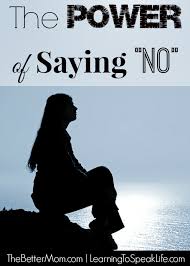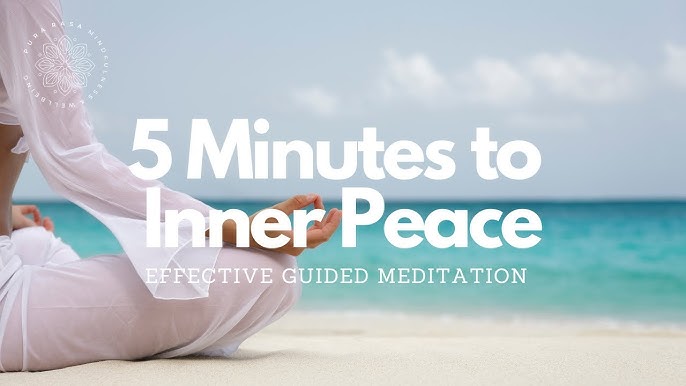The Power of Saying No
Learning to say “no” is one of the most liberating skills you can develop. It’s a small word with profound implications, empowering you to take control of your time, energy, and life. This article explores why saying “no” matters and how it can transform your personal and professional world.
The Struggle to Say No
In a world that glorifies hustle and productivity, saying “no” can feel like a rebellion. Many of us are conditioned to please others, to take on more than we can handle, and to prioritize others’ needs over our own. The fear of disappointing someone or missing out on an opportunity often traps us in a cycle of overcommitment. But what if saying “no” could be the key to unlocking a more balanced, fulfilling life?
This simple two-letter word carries immense power. It sets boundaries, protects your well-being, and allows you to focus on what truly matters. Yet, for many, saying “no” feels uncomfortable or even impossible. This article delves into the psychology behind this discomfort, the benefits of embracing “no,” and practical strategies to wield it effectively. By the end, you’ll see why saying “no” is not just an act of refusal but an act of self-empowerment.
Why Saying No Is So Hard
The difficulty of saying “no” often stems from deep-rooted psychological and social factors. Understanding these can help you navigate the discomfort and build confidence in setting boundaries.
Fear of Rejection or Conflict
One of the primary reasons people struggle to say “no” is the fear of being rejected or causing conflict. We worry that declining a request will make us seem selfish, rude, or unhelpful. This fear is often amplified in professional settings, where saying “no” to a boss or colleague might feel like risking your reputation or career.
However, this fear is often overstated. Most people respect clear communication and boundaries, and saying “no” thoughtfully can actually strengthen relationships by fostering honesty and mutual respect.
Social Conditioning
From a young age, many of us are taught to be agreeable and accommodating. Saying “yes” is seen as polite, cooperative, and a sign of a team player. In contrast, saying “no” can feel like going against societal norms, especially for those raised in cultures that emphasize collectivism or deference to authority.
Women, in particular, often face greater pressure to say “yes” due to gendered expectations around nurturing and selflessness. Breaking free from these norms requires unlearning ingrained habits and recognizing that saying “no” is not a rejection of others but an affirmation of your own needs.
FOMO and Guilt
The fear of missing out (FOMO) and guilt also play significant roles. We worry that saying “no” to an opportunity—whether it’s a project, event, or social gathering—means losing out on something valuable. Guilt can creep in when we feel we’re letting others down, even if the request is unreasonable or misaligned with our priorities.
Over time, these emotional barriers can lead to burnout, resentment, and a loss of control over our own lives. The antidote? Recognizing that saying “no” is not a negative act but a strategic one that preserves your energy for what truly matters.
The Benefits of Saying No
Embracing the power of “no” can transform your life in profound ways. Here are some of the key benefits:
1. Protecting Your Time and Energy
Time is your most finite resource. Every “yes” you say to one task or commitment is a “no” to something else—whether it’s rest, personal growth, or time with loved ones. By saying “no” to low-priority requests, you free up time and energy for the things that align with your goals and values.
For example, declining a last-minute meeting that doesn’t serve your objectives allows you to focus on a project that moves the needle in your career or personal life. This intentional allocation of resources leads to greater productivity and satisfaction.
2. Setting Healthy Boundaries
Boundaries are essential for mental and emotional well-being. Saying “no” establishes clear limits on what you’re willing to take on, preventing others from overstepping or taking advantage of your time. Healthy boundaries also foster mutual respect in relationships, as they signal that you value yourself and expect others to do the same.
In the workplace, setting boundaries might mean declining extra tasks when your plate is already full. At home, it could involve saying “no” to social commitments that interfere with family time or self-care.
3. Reducing Stress and Burnout
Overcommitment is a leading cause of stress and burnout. When you take on too much, you spread yourself thin, compromising your performance and well-being. Saying “no” allows you to manage your workload and maintain a sustainable pace, reducing the risk of exhaustion.
Studies show that chronic stress can lead to health issues like anxiety, depression, and weakened immunity. By prioritizing your mental and physical health through selective “no’s,” you create space for rest and recovery.
4. Gaining Clarity on Priorities
Saying “no” forces you to evaluate what truly matters. Each time you decline a request, you’re making a conscious choice about how to spend your time. This clarity helps you align your actions with your long-term goals, whether it’s advancing your career, nurturing relationships, or pursuing personal passions.
For instance, saying “no” to a low-value networking event might allow you to spend that time developing a new skill or working on a passion project. Over time, these choices compound, leading to significant progress toward your goals.
5. Building Confidence and Self-Respect
Every time you say “no” respectfully and confidently, you reinforce your sense of self-worth. You’re affirming that your time, energy, and needs are valuable. This builds a positive feedback loop: the more you say “no” when it’s warranted, the more confident you become in your ability to make decisions that serve you.
How to Say No Effectively
Saying “no” doesn’t have to be harsh or confrontational. With the right approach, you can decline requests gracefully while maintaining relationships. Here are practical strategies to master the art of saying “no”:
1. Be Clear and Direct
Avoid vague or ambiguous responses like “I’ll think about it” when you know you want to decline. Instead, be polite but firm: “Thank you for the opportunity, but I’m unable to take this on right now.” Clarity prevents misunderstandings and shows respect for the other person’s time.
2. Offer a Reason (When Appropriate)
Providing a brief explanation can soften the refusal and show that your decision is thoughtful. For example: “I’d love to help, but my current workload doesn’t allow me to commit fully.” Be honest, but don’t feel obligated to over-explain or justify your decision.
3. Suggest an Alternative
If you want to maintain goodwill, offer an alternative solution. For instance: “I can’t attend the meeting, but I’d be happy to review the notes and provide feedback later.” This shows you’re still invested in the relationship or project, even if you can’t participate directly.
4. Practice Assertiveness
Assertiveness is key to saying “no” without guilt. Practice phrases like: “I appreciate the offer, but it’s not a good fit for me right now.” Role-playing with a friend or in front of a mirror can help you build confidence in delivering these responses.
5. Use the “Delay” Tactic
If you’re unsure about a request, buy time to evaluate it. Say something like: “Let me check my schedule and get back to you.” This gives you space to assess whether the commitment aligns with your priorities without feeling pressured to decide on the spot.
6. Reframe “No” as a Positive Choice
Instead of viewing “no” as a rejection, see it as a proactive choice to prioritize your goals. This mindset shift reduces guilt and empowers you to make decisions that align with your values.
Pro Tip: Start small. Practice saying “no” to low-stakes requests, like declining an invitation to an event you’re not excited about. As you build confidence, you’ll find it easier to say “no” in more challenging situations.
Saying No in Different Contexts
The art of saying “no” varies depending on the context. Here’s how to apply it in different areas of life:
In the Workplace
Saying “no” at work can be daunting, especially when dealing with superiors. However, it’s often necessary to maintain productivity and avoid burnout. For example, if your boss asks you to take on an additional project, you might say: “I’m currently focused on [specific project], which requires my full attention. Could we discuss prioritizing this new task?” This approach shows you’re engaged while setting boundaries.
In Personal Relationships
In friendships and family dynamics, saying “no” can prevent resentment and maintain healthy relationships. For instance, if a friend asks for a favor you can’t accommodate, try: “I’d love to help, but I’m stretched thin this week. Can we find another way to address this?” This keeps the relationship intact while honoring your limits.
To Yourself
Sometimes, the hardest person to say “no” to is yourself. This might mean declining your own impulses to overcommit, procrastinate, or engage in habits that don’t serve you. For example, saying “no” to scrolling social media for hours allows you to redirect that time to more meaningful activities.
Overcoming the Guilt of Saying No
Guilt is a common hurdle when learning to say “no.” To overcome it, remind yourself that saying “no” is not selfish—it’s a form of self-care. Here are some tips to manage guilt:
- Reframe Your Mindset: View “no” as a way to protect your ability to show up fully for the things you say “yes” to.
- Practice Self-Compassion: Acknowledge that you’re human and can’t do everything. Treat yourself with the same kindness you’d offer a friend.
- Focus on the Bigger Picture: Saying “no” to one thing often means saying “yes” to something more important, like your health or goals.
Conclusion: Embrace the Power of No
Saying “no” is not about shutting doors; it’s about opening the right ones. It’s a skill that empowers you to take control of your time, protect your well-being, and live with intention. By understanding the psychology behind saying “no,” recognizing its benefits, and practicing it thoughtfully, you can transform your life in meaningful ways.
Start small, be kind to yourself, and remember that every “no” is a step toward a more balanced, authentic life. The power of saying “no” lies in its ability to free you from the weight of overcommitment and guide you toward what truly matters. So, the next time you’re faced with a request that doesn’t align with your priorities, take a deep breath and say “no”—with confidence and grace.






